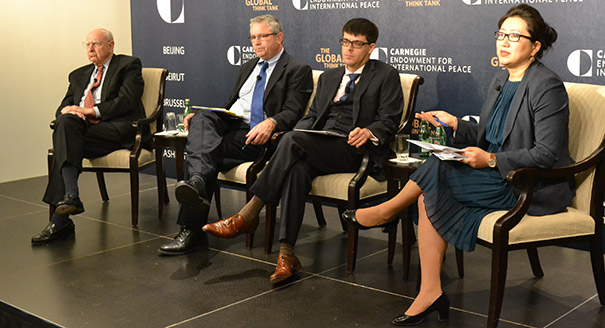Registration
You will receive an email confirming your registration.
The Nuclear Security Summit process has broken considerable ground on enhancing the security of vulnerable nuclear material. But it has made much less progress on preventing the production of fissile material that has no plausible use. One way forward, which would also complement nonproliferation efforts, would be to establish a norm that such production should be consistent with reasonable civilian needs.
Carnegie’s James M. Acton, Ariel Levite, and Togzhan Kassenova explored the potential value of this norm and discussed whether progress is possible. Ambassador Thomas R. Pickering, former U.S. under secretary of state for political affairs, moderated.
James M. Acton
James M. Acton is co-director of Carnegie’s Nuclear Policy Program. A physicist by training, Acton specializes in deterrence, disarmament, nonproliferation, and nuclear energy. His current research focuses on the nuclear fuel cycle in Japan and hypersonic conventional weapons.
Ariel Levite
Ariel Levite is a nonresident senior associate in Carnegie’s Nuclear Policy Program. Prior to joining Carnegie, Levite was the principal deputy director general for policy at the Israeli Atomic Energy Commission from 2002 to 2007.
Togzhan Kassenova
Togzhan Kassenova is an associate in Carnegie’s Nuclear Policy Program. She currently works on issues related to the role of emerging powers in the global nuclear order, weapons of mass destruction nonproliferation issues, nuclear security, and strategic trade management.
Thomas R. Pickering
Thomas R. Pickering is vice chair of Hills & Company. Ambassador Pickering served as under secretary of state for political affairs (1997–2000) and as U.S. ambassador to Russia, India, Israel, El Salvador, Nigeria, and Jordan.
